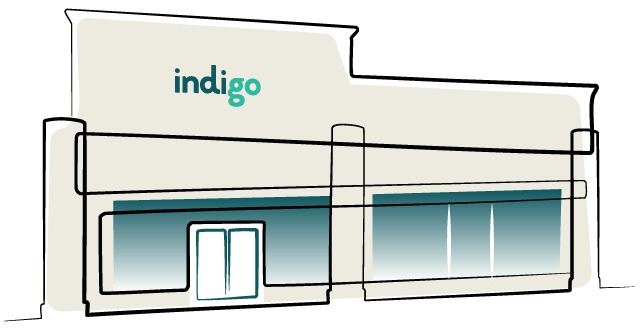Back pain is one of the most common medical problems in the United States. It can range from a dull, constant ache to a sudden, sharp pain that may shoot down the leg. Sometimes it can come on suddenly – from an accident, a fall, or lifting something heavy, or it can develop slowly because of age-related degenerative changes in the spine.
Back Pain
Causes
- Muscle or ligament strain: repeated heavy lifting or a sudden awkward movement can strain back muscles and spinal ligaments.
- Bulging or ruptured disks: disks act as cushions between the bones in the spine. The soft material inside a disk can bulge or rupture and press on a nerve.
- Arthritis: Osteoarthritis can affect the lower back. In some cases, arthritis in the spine can lead to a narrowing of the space around the spinal cord, a condition called spinal stenosis.
- Osteoporosis: the spine's vertebrae can develop painful breaks if the bones become porous and brittle.
- Ankylosing spondylitis, also called axial spondyloarthritis: this inflammatory disease can cause some of the bones in the spine to fuse. This makes the spine less flexible.
Symptoms
- Increasing pain with lifting and bending.
- Worsening pain when resting, sitting, or standing.
- Back pain that comes and goes.
- Stiffness in the morning when awakening and lessened back pain with activity.
- Pain that radiates away from the back into the buttocks, leg, or hip.
- Numbness or weakness in your legs or feet.
Treatment
Most back pain gets better within a month of home treatment, especially for people younger than age 60. Pain relievers and the use of heat might be all that's needed. Bed rest isn't recommended.
Continue your activities as much as you can with back pain. Try light activity, such as walking. Stop activity that increases pain, but don't avoid activity out of fear of pain.
If home treatments aren't working after several weeks, an Indigo clinician may prescribe medications or other therapies:
- Oral pain relievers.
- Muscle relaxants.
- Topical pain relievers.
- Physical therapy.
Should I go to Indigo?
If you have back pain that is doesn't resolve on its own, Indigo can diagnose your symptoms and recommend treatment.
If you have back pain along with any of the following symptoms, visit your nearest emergency department:
- Causes new bowel or bladder problems.
- Is accompanied by a fever.
- Follows a fall, blow, to the back, or other injury.
- Numbness and tingling.
- Severe back pain that does not improve with medication.
- Trouble urinating.
- Weakness, pain, or numbness in your legs.
- Fever.
- Weight loss that you did not intend.

Related Blogs
How can we help?

